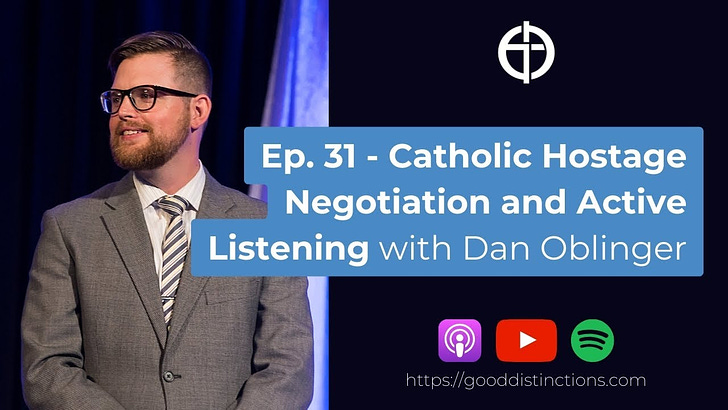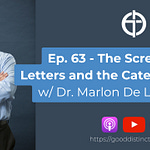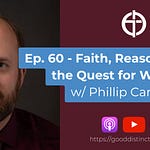I had the pleasure of speaking with Dan Oblinger, retired law enforcement officer, about hostage negotiation, active listening, evangelization, and much more. Please take a listen and then share! And if you listening on Apple Podcasts or Spotify, please leave a rating for the podcast!
Summary
In this conversation, Will Wright interviews Dan Oblinger, a retired law enforcement officer and hostage negotiator, about the importance of active listening in hostage negotiation and evangelization. Dan emphasizes that listening is about authentic communication and forming relationships through powerful communication. He highlights the role of listening in building trust, empathy, and rapport, and how it opens the doors of the mind for creative solutions and conversions. Dan also discusses the importance of storytelling and receiving others' stories in evangelization, and the need for good holy friendships that provide a safe space for open dialogue. Listening is an essential skill for building relationships, whether it's with friends, colleagues, or even oneself. Active listening involves participation, such as offering observations, summarizing, and reflecting on what is being said. By actively listening and acknowledging someone's story, we honor them and build trust. It is important to listen for emotions and understand the unspoken motivations behind a person's story. Good listening requires humility and the ability to resist the urge to affirm or validate someone's beliefs. Cultivating silence in our lives is crucial for self-reflection and deepening our relationship with God. Effective listening skills, such as minimal encouragers, open-ended questions, reflecting, emotion labels, effective pause, and summarizing, can enhance our ability to connect with others and lead to better decision-making. Listening is a key aspect of leadership, as it allows us to understand and unite with others to achieve common goals. The virtue of magnanimity, which involves drawing out the best in others, is closely tied to good listening. Dan Oblinger, a former hostage negotiator, emphasizes the importance of listening in various contexts, including counter human trafficking work and training cultures in active listening and negotiation.
Takeaways
Active listening is a vital skill in hostage negotiation and evangelization, as it forms the foundation for authentic communication and relationship-building.
Listening involves more than just hearing; it requires active engagement, empathy, and a willingness to understand the other person's perspective.
In hostage negotiation, listening is the key to building trust, creating rapport, and finding peaceful resolutions.
In evangelization, listening allows us to receive others' stories and understand their needs, which opens the door for sharing the truth of the Gospel.
Good holy friendships are essential for open dialogue and mutual growth, providing a safe space for sharing and receiving stories.
Listening should be a lifelong practice, continually honed and improved to deepen connections and understanding with others. Active listening involves participation and acknowledging someone's story, which builds trust and honors the relationship.
Listening for emotions and understanding the unspoken motivations behind a person's story is crucial for effective communication.
Cultivating silence in our lives allows for self-reflection and deepening our relationship with God.
Effective listening skills, such as minimal encouragers, open-ended questions, reflecting, emotion labels, effective pause, and summarizing, enhance our ability to connect with others and make better decisions.
Listening is a key aspect of leadership, as it allows us to understand and unite with others to achieve common goals.
The virtue of magnanimity, which involves drawing out the best in others, is closely tied to good listening.
Sound Bites
"Listening is nothing without dialogue."
"If you wanted to boil down hostage negotiation to one word, it'd be listening."
"It's an act of humility to set aside what you want and instead listen."
"When we acknowledge a story, people don't have the need to repeat it anymore. It settles the story and the relationship."
"My job is to listen, receive, reflect upon, enter into dialogue with, but never affirm."
"Listening to people's stories is a way to honor them and their value."
Chapters
00:00 Introduction and Background
02:14 The Importance of Listening
07:02 Listening in Crisis Situations
10:19 Listening in Everyday Conversations
18:00 The Role of Listening in Evangelization
24:13 The Power of Storytelling
27:37 The Danger of Transactional Listening
35:03 Listening to People with Different Perspectives
38:15 Dealing with Outlandish Beliefs
40:05 Listening without Affirming
41:15 Validating vs. Understanding
45:17 Building Relationships through Listening
48:06 Listening to Ourselves
52:18 Cultivating Silence
56:17 Habits of Active Listening
59:03 Understanding Emotional State
01:02:54 Leadership and Listening
01:08:40 Defining Leadership
01:11:20 Future Endeavors














Share this post